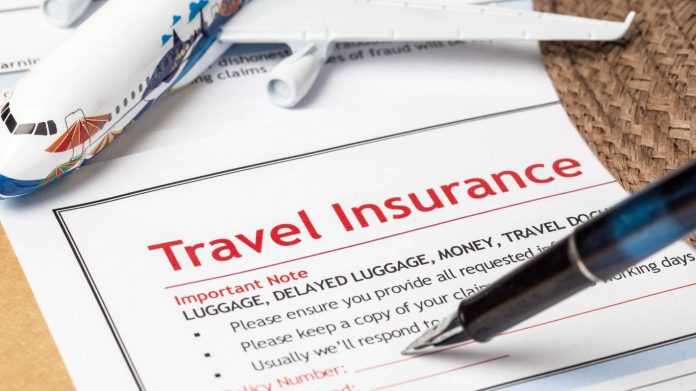Katrina Shanks is the chief executive of Financial Advice New Zealand.
OPINION: The world is opening up again post-Covid, whether it be for travel or young people heading off on their OEs after nearly three years of restrictions.
This is showing up in Air NZ’s latest booking figures, which are now at close to 85% to 90% of pre-Covid capacity into North America, with other long-haul destinations such as Japan and Europe gathering momentum.
Statistics NZ estimates that in June there will be some 140,000 Kiwis headed overseas for short-term travel in June.
READ MORE:
* Seven things I’ve learned from writing about other people’s travel troubles
* How to spot a Kiwi traveller overseas: Covid edition
* What travel chaos? Heading overseas isn’t always as scary as it seems
* Explainer: Travel insurance is limited for Covid-19 cover, ombudsman warns
Australia remains the most popular destination, though Asia is attracting the biggest growth, along with Europe and the UK, while China has seen a recent rise of more than 50%.
If you’re one of those planning to join them on a holiday or OE, it’s time to be even more diligent than we have had to be historically, because the world has changed at lot. Think Covid and the war in Ukraine and all the pressures they bring in all sorts of ways.
Katrina Shanks says it can be catastrophic to get caught without personal health and accident cover in another country.
The first thing you should do when making plans is check where it’s safe to go.
Check out the Ministry of Foreign Affairs and Trade’s SafeTravel website, which has travel advisories, a checklist and tips on how to prepare for your journey, advice on what to do when things go wrong, and embassy contacts.
One of the most important parts of the tips section is on travel insurance. Its opening sentence is blunt: “Take out travel insurance.”
And that is among the best advice you can get, especially in these times.
We all know we should take out insurance for our valuables and in case our suitcases get lost in transit, but actually the most important insurance of all when we’re travelling overseas is for sickness or having an accident.
People who have travelled before should know this already, but if it’s your first time, it’s something that can’t be stressed enough.
In some ways, you could forget insuring your valuables, and it wouldn’t matter too much because, apart from the inconvenience, you can always replace them, and the loss is not catastrophic. But getting caught without personal health and accident cover in another country can be.
It could mean the difference between getting good and efficient care in a good hospital, or getting medivaced home to even better care – or not.
There are many horror stories of people without any insurance, or with inadequate insurance, being left high and dry overseas and having to stay in a hospital indefinitely while the bills soar into the tens, even hundreds of thousands of dollars, and being left with lifetime bills.
As much as a Givealittle page sometimes helps, that is not managing your risk.
Supplied
Katrina Shanks is the chief executive of Financial Advice New Zealand.
So, what do you need to cover?
First, research the countries you’re going to and see how their medical systems work.
Most of the time you’ll find they offer very little, if anything, that is free to tourists, unlike in New Zealand.
There may be criticisms of our health system, but at least you’ll be seen and treated as soon as conditions or waiting lists allow.
It may be slow, but it’s often a great deal better than you’ll find in almost every other country.
Many independent experts will say you should take out a comprehensive insurance policy for the length of your time away, and make sure everything in it suits your circumstances.
I don’t mean something gold-plated, with zillions of dollars of personal liability cover, rather something that covers your basic needs.
There are many options available, but basically you need 24/7 cover for everything from injury and accident and hospital care, ambulance cover and dental, to medical evacuation and repatriation (even covering the cost of someone to travel with you should you need that) to get you home if you need long-term care.
And that’s the most important thing.
Who wants to be bedridden in another country, unable to get home to be near the support of loved ones, or at best have to wait weeks for an available commercial flight home?
A comprehensive policy can cover all that, as well as lost baggage, stolen items, and even if you’re at fault in a car accident.
Get cover you can that suits you best. You most likely won’t need something that gives you millions of dollars of public liability, but you will need something that covers you for all contingencies.
Make sure it has Covid cover
Not every policy offers cover for additional expenses if you are diagnosed with Covid on your trip and need to quarantine or self-isolate, or if a travelling companion contracts it, and you’re required to isolate with them without catching it yourself.
Make sure you are covered for all this, and your travelling companions are, too.
Make sure also the Covid clause kicks in before you fly out. Some policies take 21 days to take effect in the event of you contracting Covid.
For your piece of mind in the worst-case scenario of you dying overseas, you can get cover for your body to be repatriated. This can minimise expenses for your family and avoid them a lot of anguish.
Treat your insurance policy like you would an investment, because that’s precisely what it is – it’s like securing your future.
Some people say it’s too expensive. But you need to balance the several hundred dollars you pay for insurance against the risks you run.
Remember you may get insurance when you buy your tickets in NZ – this will protect the costs of cancellations if you can’t fly because you are unable to travel due to sickness or accident – or a dependent family member needs care or has died.
I look at it this way: if you can’t afford insurance then maybe you shouldn’t go. I will have the opportunity to travel in the near future and I will be comparing the options available from my current health insurer and also my credit card has some options to begin the process of finding the right level of protection for my peace of mind.
As my financial adviser would say – insurance is like your passport – don’t leave home without it.













